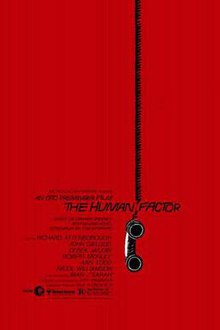
Harold Adrian Russell "Kim" Philby was a British intelligence officer and a spy for the Soviet Union. In 1963, he was revealed to be a member of the Cambridge Five, a spy ring which had divulged British secrets to the Soviets during World War II and in the early stages of the Cold War. Of the five, Philby is believed to have been most successful in providing secret information to the Soviets.
Spy fiction is a genre of literature involving espionage as an important context or plot device. It emerged in the early twentieth century, inspired by rivalries and intrigues between the major powers, and the establishment of modern intelligence agencies. It was given new impetus by the development of fascism and communism in the lead-up to World War II, continued to develop during the Cold War, and received a fresh impetus from the emergence of rogue states, international criminal organizations, global terrorist networks, maritime piracy and technological sabotage and espionage as potent threats to Western societies. As a genre, spy fiction is thematically related to the novel of adventure, the thriller and the politico-military thriller.

The Cambridge Five were a ring of spies in the United Kingdom that passed information to the Soviet Union during the Second World War and the Cold War and was active from the 1930s until at least the early 1950s. None of the known members were ever prosecuted for spying. The number and membership of the ring emerged slowly, from the 1950s onwards.
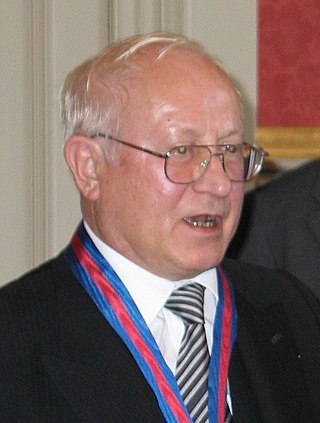
Oleg Antonovich Gordievsky, CMG is a former colonel of the KGB who became KGB resident-designate (rezident) and bureau chief in London, and was a double agent, providing information to the British Secret Intelligence Service (MI6) from 1974 to 1985. After being recalled to Moscow under suspicion, he was exfiltrated from the Soviet Union in July 1985 under a plan code-named Operation Pimlico. The Soviet Union subsequently sentenced him to death in absentia.

George Blake was a spy with Britain's Secret Intelligence Service (MI6) and worked as a double agent for the Soviet Union. He became a communist and decided to work for the MGB while a prisoner during the Korean War. Discovered in 1961 and sentenced to 42 years in prison, he escaped from Wormwood Scrubs prison in west London in 1966 and fled to the Soviet Union. He was not one of the Cambridge Five spies, although he associated with Donald Maclean and Kim Philby after reaching the Soviet Union.
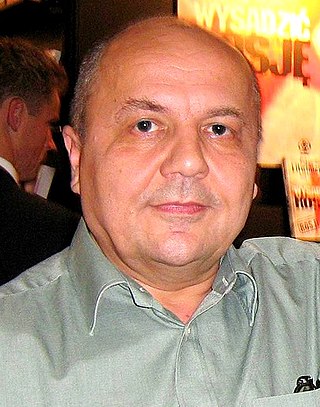
Vladimir Bogdanovich Rezun, known by his pseudonym of Viktor Suvorov is a former Soviet GRU officer who is the author of non-fiction books about World War II, the GRU and the Soviet Army, as well as fictional books about the same and related subjects.

Guy Francis de Moncy Burgess was a British diplomat and Soviet double agent, and a member of the Cambridge Five spy ring that operated from the mid-1930s to the early years of the Cold War era. His defection in 1951 to the Soviet Union, with his fellow spy Donald Maclean, led to a serious breach in Anglo-United States intelligence co-operation, and caused long-lasting disruption and demoralisation in Britain's foreign and diplomatic services.
Rupert William Simon Allason is a British former Conservative Party politician and professional author. He was the Member of Parliament (MP) for Torbay in Devon, from 1987 to 1997. He writes books and articles on the subject of espionage under the pen name Nigel West.

The Petrov Affair was a Cold War spy incident in Australia, concerning the defection of Vladimir Petrov, a KGB officer, from the Soviet embassy in Canberra in 1954. The defection led to a Royal Commission and the resulting controversy contributed to the Australian Labor Party split of 1955.

Oleg Vladimirovich Penkovsky, codenamed Hero and Yoga was a Soviet military intelligence (GRU) colonel during the late 1950s and early 1960s. Penkovsky informed the United States and the United Kingdom about Soviet military secrets, most importantly, the appearance and footprint of Soviet intermediate-range ballistic missile installations and the weakness of the Soviet intercontinental ballistic missile program. This information was decisive in allowing the US to recognize that the Soviets were placing missiles in Cuba before most of them were operational. It also gave US President John F. Kennedy, during the Cuban Missile Crisis that followed, valuable information about Soviet weakness that allowed him to face down Soviet leader Nikita Khrushchev and resolve the crisis without a nuclear war.
Harold Alaric Jacob was an English writer and journalist. He was a Reuters correspondent in Washington in the 1930s and a war correspondent during World War II in North Africa, Burma and Moscow.

The Human Factor is an espionage novel by Graham Greene, first published in 1978 and adapted into the 1979 film The Human Factor, directed by Otto Preminger using a screenplay by Tom Stoppard.
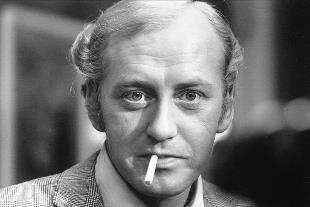
Thomas Nicol Williamson was a British actor. He was once described by playwright John Osborne as "the greatest actor since Marlon Brando". He was also described by Samuel Beckett as "touched by genius" and viewed by many critics as "the Hamlet of his generation" during the late 1960s.
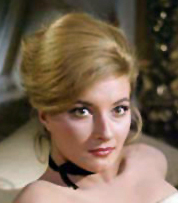
Tatiana Alexeievna "Tania" Romanova is a fictional character in the 1957 James Bond novel From Russia, with Love, its 1963 film adaptation and the 2005 video game based on both.
Vladimir Anatolyevich KuzichkinВладимир Анатольевич Кузичкин is a former Soviet foreign intelligence officer who defected to Great Britain. He worked as an undercover agent for the KGB in Iran beginning in 1977. The details of his defection are uncertain, but he arrived in Great Britain in October 1982. Kuzichkin gave information on Soviet operations, agents, and socialist activists to MI6; British intelligence and the CIA then provided the information to the Khomeini regime, which executed many of the agents.

The Company is a three-part serial about the activities of the CIA during the Cold War. It was based on the best-selling 2002 novel of the same name by Robert Littell. The teleplay adaptation was written by Ken Nolan, who received a Writers Guild of America Award for Television: Long Form – Adapted.

The State Within is a six-part British television political thriller series, written and created by Lizzie Mickery and Daniel Percival, that was broadcast on BBC One in the United Kingdom from Thursday, 2 November 2006. The series, directed by Percival and Michael Offer and produced by Grainne Marmion, is a joint production between BBC Films and BBC America that follows Sir Mark Brydon, the British Ambassador to Washington, who is caught in the centre of a political conspiracy threatening to depose Western governments. As such, he must prevent a war, all whilst facing his own personal dilemmas.

Lieutenant-Commander Lionel Kenneth Phillip Crabb,, known as Buster Crabb, was a Royal Navy frogman and diver who vanished during a reconnaissance mission for MI6 around a Soviet cruiser berthed at Portsmouth Dockyard in 1956.
The Game is a British Cold War spy thriller television serial set in London in 1972. The six-part series was created by Toby Whithouse, written by Whithouse, Sarah Dollard and Debbie O'Malley, and first broadcast on BBC America in 2014.
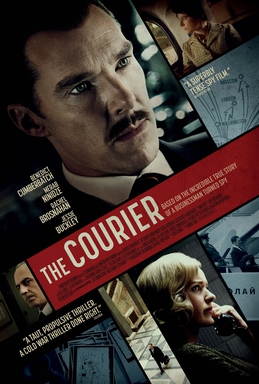
The Courier is a 2020 historical spy film directed by Dominic Cooke and written by Tom O'Connor. The film stars Benedict Cumberbatch as Greville Wynne, and is based on the true story of a British businessman who was recruited by the Secret Intelligence Service to be a message conduit with Russian spy source Oleg Penkovsky in the 1960s. Rachel Brosnahan, Jessie Buckley, and Angus Wright also star.
